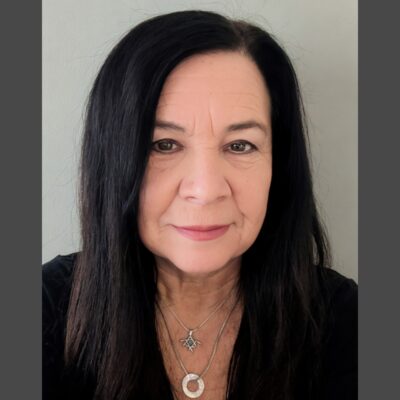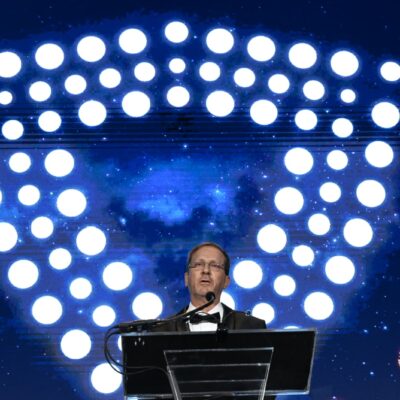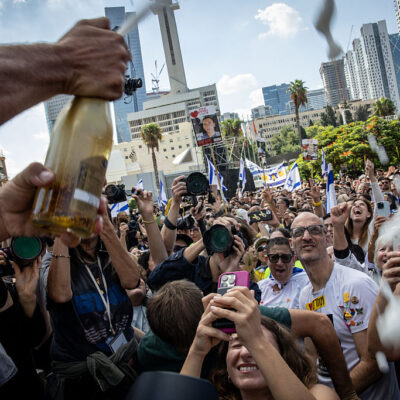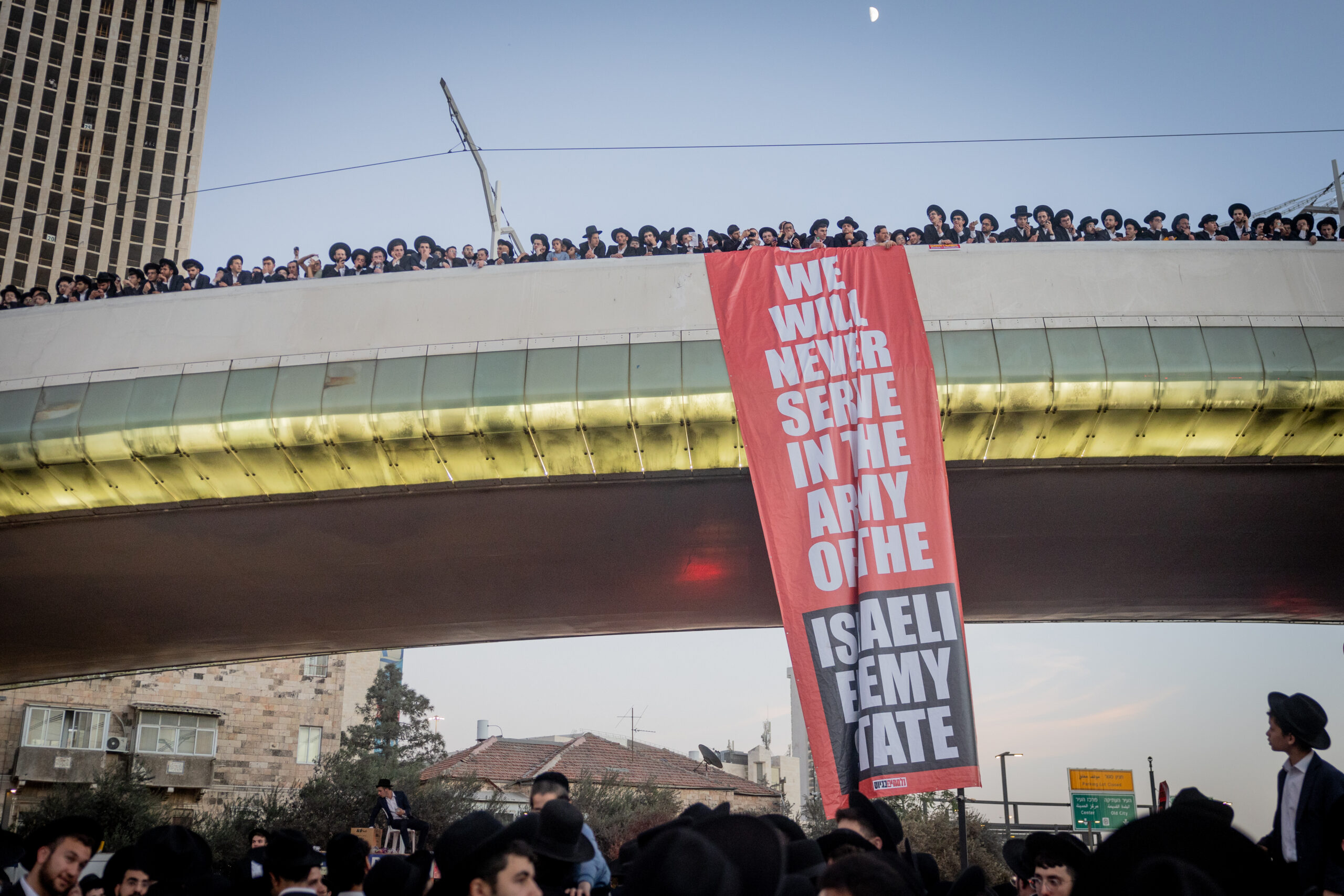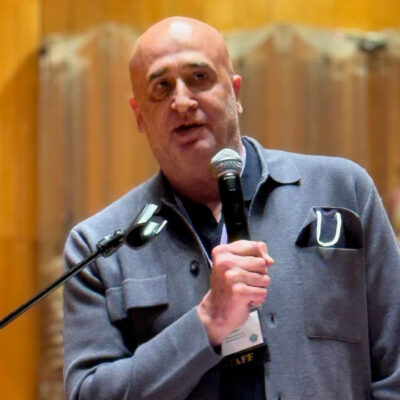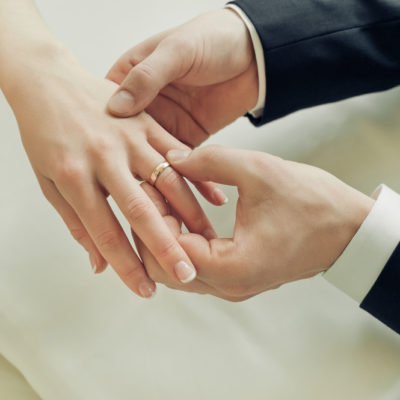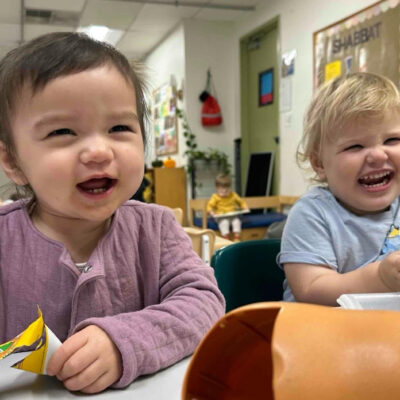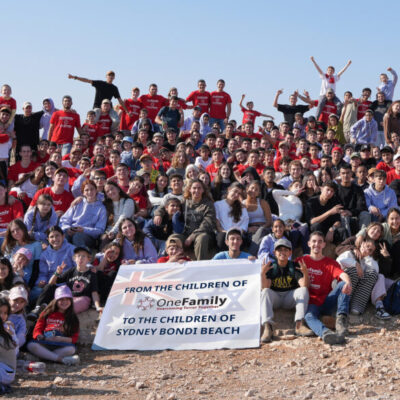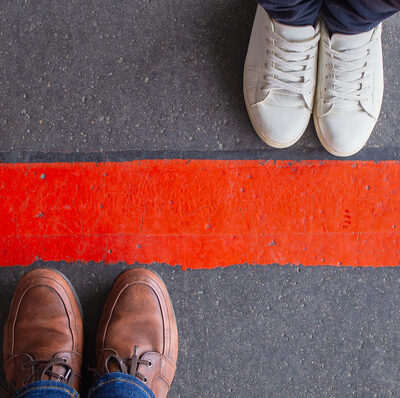TINSELTOWN TALK
Fighting antisemitism, bridge-building at core of ‘teach-in’ at Temple Israel of Hollywood
Speakers both describe the current state of Jew hate in the U.S. and prescribe measures to combat it

COURTESY/TIOH/FACEBOOK
Sharon Nazarian (center) stands with her mother, Soraya Nazarian (left), and Temple Israel of Hollywood's Rabbi Michelle Missaghieh at the synagogue's teach-in on Feb. 4, 2024.
Sharon Nazarian, president of her family’s philanthropic foundation and founder of UCLA’s Younes & Soraya Nazarian Center for Israel Studies, called on Jewish donors to not pull their funding from universities over antisemitism and anti-Zionism but to instead redirect their dollars toward combating it from inside the institutions.
“As someone who built a center at UCLA that I’m so proud of, our family is so proud of — our center being there is part of the solution, [it is] there day in and day out educating about Israel. So my advice is: repurpose your dollars,” she said. “Make sure [your gifts] are going towards more classes on antisemitism, [or] institutes of research on university campuses.”
Nazarian made her remarks at the opening session of a half-day “Teach-in on Antisemitism” on Sunday at Temple Israel of Hollywood — the go-to shul for many of the entertainment industry’s leading stars.
The event featured two main discussions, the first focused more on describing the rise of antisemitism in the United States in general and on college campuses specifically and the second more on prescribing ways to respond.
“Our community is struggling with unprecedented levels of antisemitism and is collectively seeking solutions to help lower the temperature in the backdrop of war, to build bridges and to ensure flourishing Jewish lives both here in Los Angeles and globally,” Joanna Mendelson, senior VP of community engagement at the Jewish Federation of Greater Los Angeles, who moderated one of the panels, told eJP after the event. “What was remarkable about the discussions was the shared aspirations to foster opportunities to build deeper understanding and empathy among diverse groups.”
In addition to the two panel talks, the 200 participants attended their choice of breakout discussions about antisemitism on campus; defining modern Zionism; holding empathy for others and ourselves; and distinguishing between support for Palestinians and support of Hamas.
The opening session, “Understanding the Rise of Contemporary Antisemitism: Pre- and Post-Oct. 7,” consisted of a conversation — moderated by Mendelson — between Nazarian and Dov Waxman, the director of the UCLA center.
Nazarian, who emigrated from Iran when she was 10 years old, spoke about the “generational DNA that was passed on from one generation to another,” saying that Oct. 7 made her three adult children more clearly understand the stories of antisemitism in Iran that they had heard from their parents and grandparents. (To hear more from Nazarian, check out the most recent episode of eJP’s interview series “Get Your Phil” here.)
Nazarian identified the digital space as “the forefront of this war,” and said that just as medicine bottles have childproof caps, social media companies should be held accountable for child safety. “Their algorithms are built to feed more and more and more and take you down rabbit holes that radicalize,” Nazarian said.
Waxman said that because of Jews’ history as a historically oppressed minority, “we often feel existentially alone, but I think it is important to recognize that we’re not facing this threat alone.” He noted recent hate crimes and incidents against Muslims, Black Americans, Asian Americans and immigrants, saying that the U.S. was experiencing “an epidemic of hate, in which Jews are being targeted, but not solely targeted.”
In the closing plenary, titled “Taking Action: Building Bridges,” the speakers brought both their professional and personal experiences into their remarks.
Stephen D. Smith, the former executive director of the USC Shoah Foundation, grew up Christian, but after a career in genocide education had recently converted to Judaism. Aziza Hasan, executive director of NewGround: A Muslim-Jewish Partnership for Change, grew up with a Palestinian Muslim father and a white Christian mother who “indoctrinated me into this idea that we can all get along,” she said. She served as cultural “translator” between people in her family, she added.
“We have to be able to talk about these hard things,” said Hasan. “We have to be able to talk about what hurts, we have to be able to talk about how we can figure out where we’re going to build. But first, we have to understand more.”
Smith also urged the assembled to engage empathy, which is a skill, he stressed, not an emotion.
“[It’s] the ability to step outside of how you feel, to listen fully to the other person and to their experience and to be able to understand them from their perspective, even if you don’t agree with the[ir] perspective, so that you can be more fully informed in the conversation,” he said. “It’s important that we listen to everybody’s stories, because in the humanizing of our stories is where we find each other, where we find the commonalities.”
Virtually every person who rescued at least one Jewish person during the Holocaust knew somebody Jewish before World War II, Smith noted.
“If you don’t have the bridge built before this conflict, you aren’t going to build it during the conflict. You have to have that bridge in place,” he said, “otherwise you’ve just got a chasm and you can’t cross it.”
Hasan acknowledged that building those bridges between Muslims and Jews is “going to be hard,” but said that there was power in “shifting the narrative” from hatred to support. “Let that be our story moving forward, taking care of each other,” she said.
Reflecting on the event afterward, Lisa Hofheimer, a TIOH congregant who chaired the teach-in, told eJP afterward that the speakers were “oozing with humility and honesty. I hope that people felt empowered with knowledge, inspired to lean into complexity and (more) grounded by the allies in our community,” she said.
At the program’s close, TIOH Associate Rabbi Michelle Missaghieh said she and Hasan had been planning a group trip to Israel and the West Bank: half of it with Muslim constituents from NewGround and the other half Jewish TIOH members. They had been scheduled to meet to discuss the trip on Oct. 9 — Missaghieh canceled the meeting and told Aziza she couldn’t have that conversation yet. “Aziza reached out to me right away, it took me a while,” Missaghieh said. “I shared my fury and my disgust and my anger. And she held me, and our conversations have continued.”
“Maybe there are ways that we can respect one another’s space and know that sometimes we just need to pull back,” said Missaghieh. “But we only pull back in order to then be able to build those bridges and to walk across them, with one another.”

 Add EJP on Google
Add EJP on Google